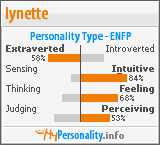Dieterich Buxtehude - Ciacona in C minor
>> Wednesday, November 4, 2009
Dieterich Buxtehude (c. 1637 – 9 May 1707) was a German-Danish organist and a highly regarded composer of the Baroque period. His organ works comprise a central part of the standard organ repertoire and are frequently performed at recitals and church services. He wrote in a wide variety of vocal and instrumental idioms, and his style strongly influenced many composers, including Johann Sebastian Bach. Buxtehude, along with Heinrich Schütz, is considered today to be one the most important German composers of the mid-Baroque.
He is thought to have been born with the name Diderich Buxtehude. Scholars dispute both the year and country of his birth, although most now accept it taking place in 1637 in Helsingborg, Skåne, at the time part of Denmark (but now part of Sweden). His obituary stated that "he recognized Denmark as his native country, whence he came to our region; he lived about 70 years". Others, however, claim that he was born at Oldesloe in the Duchy of Holstein, which at that time was a part of the Danish Monarchy (but is now in Germany). Later in his life he Germanized his name and began signing documents Dieterich Buxtehude.
The bulk of Buxtehude's oeuvre consists of vocal music, which covers a wide variety of styles, and organ works, which concentrate mostly on chorale settings and large-scale sectional forms. Chamber music constitutes a minor part of the surviving output, although the only works Buxtehude published during his lifetime were fourteen chamber sonatas. Unfortunately, many of Buxtehude's compositions have been lost. The librettos for his oratorios, for example, survive; but none of the scores does, which is particularly unfortunate, because his German oratorios seem to be the model for later works by Johann Sebastian Bach and Georg Philipp Telemann. Further evidence of lost works by Buxtehude and his contemporaries can be found in the recently discovered catalogue of a 1695 music-auction in Lübeck.
Information Source: Wikipedia
He is thought to have been born with the name Diderich Buxtehude. Scholars dispute both the year and country of his birth, although most now accept it taking place in 1637 in Helsingborg, Skåne, at the time part of Denmark (but now part of Sweden). His obituary stated that "he recognized Denmark as his native country, whence he came to our region; he lived about 70 years". Others, however, claim that he was born at Oldesloe in the Duchy of Holstein, which at that time was a part of the Danish Monarchy (but is now in Germany). Later in his life he Germanized his name and began signing documents Dieterich Buxtehude.
The bulk of Buxtehude's oeuvre consists of vocal music, which covers a wide variety of styles, and organ works, which concentrate mostly on chorale settings and large-scale sectional forms. Chamber music constitutes a minor part of the surviving output, although the only works Buxtehude published during his lifetime were fourteen chamber sonatas. Unfortunately, many of Buxtehude's compositions have been lost. The librettos for his oratorios, for example, survive; but none of the scores does, which is particularly unfortunate, because his German oratorios seem to be the model for later works by Johann Sebastian Bach and Georg Philipp Telemann. Further evidence of lost works by Buxtehude and his contemporaries can be found in the recently discovered catalogue of a 1695 music-auction in Lübeck.
Information Source: Wikipedia





























1 comments:
Hi Lynette,
Not really familiar with Buxtehude and not big on organ music either but I enjoyed this, gentler tune more so than any hellfire and brimstone or deep dread options!
Post a Comment